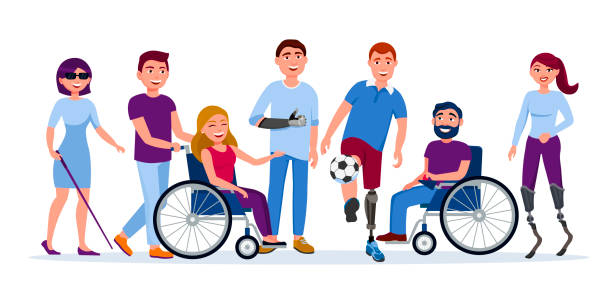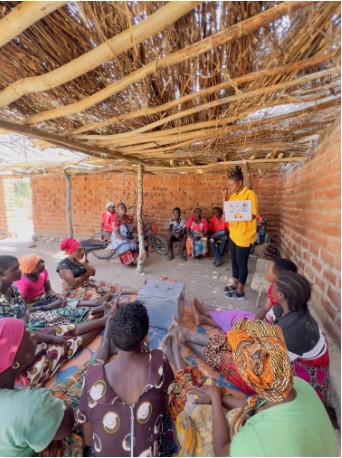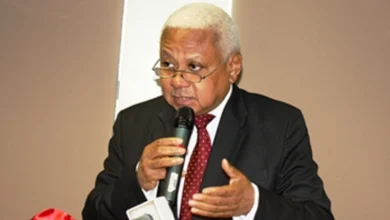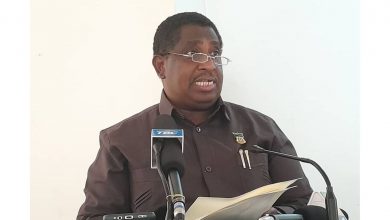Integrate people with disabilities, unlock their potential

AS the world celebrated the International Day of Persons with Disabilities (IDPD) on December 3rd, it was an opportunity to recognise not only the resilience of persons with disabilities but also their vital roles in shaping communities.
For instance, locally in Tanzania, BRAC Maendeleo Tanzania has been at the forefront of empowering individuals with disabilities, helping them break free from poverty and achieve self-sufficiency.
The phrase “disability is not inability” resonates powerfully, highlighting the potential of persons with disabilities to excel in various fields. Across Tanzania and beyond, individuals with disabilities are proving their capabilities—whether as skilled professionals, reliable drivers, or successful leaders contributing significantly to society.
However, unlocking this potential requires targeted support and empowerment to overcome barriers. Organisations like BRAC Maendeleo Tanzania are stepping in to provide such support through their innovative Disability-Inclusive Ultra-Poor Graduation (DIG) Programme.
This initiative uses BRAC’s Ultra-Poor Graduation model, a holistic approach to addressing extreme poverty, to uplift women and individuals with disabilities.
Through interventions like social protection, training, asset provision, financial literacy, and community engagement, participants are equipped with tools for sustainable livelihoods and economic mobility. Speaking recently in Dar es Salaam, BRAC Maendeleo Tanzania DIG Programme Manager, Ms Rachel Mbwiliza, highlighted the tangible results of their efforts.

“We understand the unique, multifaceted needs of people living in extreme poverty and their inherent potential. That’s why we provide the necessary training, resources and support to help them graduate from poverty and lead self-sufficient lives,” she said.
Ms Mbwiliza explained that the DIG Programme is being implemented in Chamwino District (Dodoma Region), Manyoni District and Singida Rural (Singida Region). It aims to empower 1,050 ultra-poor households, 15 per cent of which include persons with disabilities.
“Our approach includes four key pillars: social protection, livelihoods promotion, financial inclusion and social empowerment,” she elaborated.
Key approaches
1. Social Protection: Participants receive essential support, including consumption aid, specialised medical care, rehabilitation services and therapies tailored to their disabilities.
2. Livelihoods Promotion: The programme provides participants with marketviable assets such as livestock or small enterprises, along with technical skills training to manage these assets effectively. Assistive devices and reasonable accommodations are also offered to persons with disabilities.
3. Financial Inclusion: Participants gain access to formal or informal financial services, including Village Savings and Loan Associations (VSLAs), coupled with financial literacy training to manage income effectively.
4. Social Empowerment: Regular checkins and life-skills training help participants build confidence, promote social inclusion and develop behaviours conducive to selfsufficiency. To ensure the programme’s success, BRAC has partnered with organisations like the Tanzania Federation of Disabled People’s Organisations and Humanity & Inclusion, working closely with government agencies.
Transformative impact Since its launch in May 2023, the programme has had life-changing impacts. For instance, Melea, a woman with physical impairments who was previously bedridden, received a wheelchair and a petty trade package. She now runs a small shop that sustains her livelihood and enables her active participation in her community.
The programme has also provided 3,173 livestock, 71 agricultural kits and 126 petty trade packages to 1,050 participants, 15 per cent of whom are persons with disabilities.
Additionally, 53 Inclusive VSLAs have been established, with over 40 per cent of leadership roles held by persons with disabilities. Community Health Insurance has been provided to 1,050 participants and Peer Support Groups have been formed to foster encouragement and knowledge sharing.
Within just 18 months, the results are remarkable: 75 per cent of participants actively save through VSLAs, 78 per cent have more than two income sources and over 90 per cent consume balanced, nutritious meals.
As Tanzania and the world commemorate IDPD, the achievements of organisations like BRAC Maendeleo Tanzania serve as a powerful reminder that true progress is achieved by uplifting every member of society, leaving no one behind.





